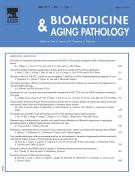Potassium aspartate attenuates apoptotic cell death after focal cerebral ischemia in rats - 06/04/13


Abstract |
Potassium aspartate (PA), as an electrolyte supplement, is used widely in clinical practice. To test the idea that high extracellular K+ might attenuate neuronal apoptosis, male Sprague-Dawley rats were subjected to 2h of middle cerebral artery occlusion (MCAo) and 22h of reperfusion. Vehicle or PA was administrated intraperitoneally after 1h MCAo. The neurological deficit and dose-responses of PA to MCAo were examined. Brain ATP and lactic acid levels, caspase-3 and caspase-9 activities and the apoptotic cell death were evaluated as well as western blot analysis for cytochrome c (cyt c) release and Poly(ADP-ribose) polymerase-1 (PARP-1) cleaved. Our results show that PA treatment at the dose of 62.5mg/kg significantly improved neurological deficits (P<0.01) and decreased the infarct volume compared with vehicle treatment (P<0.05). PA treatment significantly reduced the loss of ATP (P<0.05), the activity of caspase-3 (P<0.05), the cleavage of PARP-1 (P<0.05), and the apoptotic cell death(P<0.01) compared with vehicle treatment. Moreover, PA attenuated cyt c release to some extent. Our results indicate that PA has neuroprotective effects against apoptosis through mitochondrial apoptotic pathway after cerebral ischemia in rats. It will provide an experimental evidence for the clinical application of PA.
Le texte complet de cet article est disponible en PDF.Keywords : Potassium aspartate, MCAo, Apoptosis
Abbreviations : PA, MC, ECA, ICA, MCA, TTC, TUNEL, LAl, Ac-DEVD-PN, Ac-LEHD-PN, HRP, DAB, HPF, BCA, BSA, SDS-PAGE, cyt c, PARP-1, SEM, LD50, Apaf-1, KATP
Plan
Vol 3 - N° 1
P. 14-19 - janvier 2013 Retour au numéroBienvenue sur EM-consulte, la référence des professionnels de santé.
L’accès au texte intégral de cet article nécessite un abonnement.
Déjà abonné à cette revue ?

